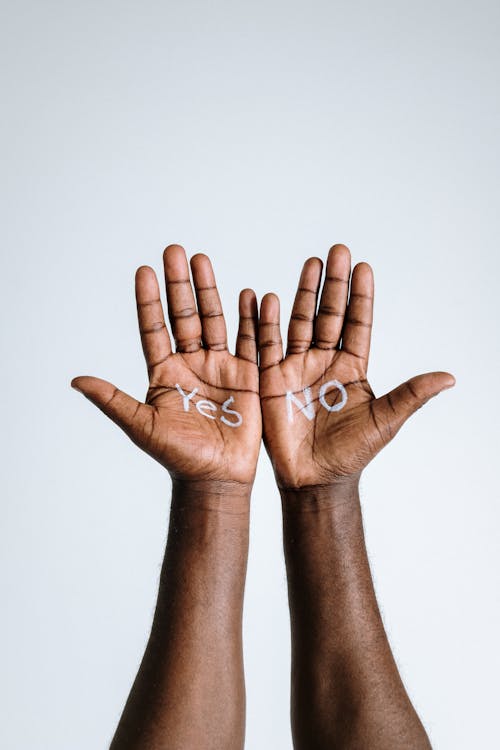The Paradox of Choice: How Too Many Options Are Making Us Unhappy
In today’s world, we are bombarded with choices in nearly every aspect of life—from the variety of cereals on the grocery shelf to career paths, relationships, and even the endless stream of content on streaming platforms. On the surface, it seems like a great advantage; more options should mean more freedom and greater satisfaction. However, there’s growing evidence that the abundance of choice is not leading to greater happiness but rather to increased anxiety, decision paralysis, and dissatisfaction. This phenomenon is known as the paradox of choice, a term popularized by psychologist Barry Schwartz in his book The Paradox of Choice: Why More is Less.
The Overload of Choices
The modern world offers unprecedented access to options. Whether it’s picking a college major, deciding what to wear, or even choosing which dating app to use, people are constantly facing a multitude of decisions. While we may expect more choices to empower us, in reality, they often lead to a sense of being overwhelmed. As Schwartz suggests, when faced with too many choices, we struggle to make decisions and may end up feeling regretful or anxious even after choosing.
Consumer Goods: The Illusion of Freedom
Take the example of consumer goods. A trip to a supermarket presents us with dozens of types of toothpaste, shampoos, or cereals. At first glance, this variety seems liberating. Yet, when confronted with an overwhelming array of products, we often experience decision fatigue. The sheer abundance of choices can lead to mental overload, causing us to either make impulsive decisions or leave us frozen, unable to choose at all.
Studies show that when people are presented with too many options, they are less satisfied with their final choice. This is because the presence of many alternatives makes it easier to imagine how another option might have been better, triggering feelings of regret. This phenomenon, known as choice overload, leads to stress and dissatisfaction rather than satisfaction and fulfillment.
The Anxiety of Decision-Making
More choices often create more opportunities for disappointment. In a world where limitless options are available, the fear of making the wrong choice can paralyze decision-making. The pressure to make the “best” decision leads to overthinking, second-guessing, and anxiety.
In social settings, we see this dilemma in full effect. With the rise of online dating platforms, for example, singles now have an overwhelming number of potential partners at their fingertips. While this should theoretically increase the chances of finding the perfect match, it often leads to dissatisfaction, as individuals constantly wonder if there is someone better out there. The constant “swipe culture” promotes endless comparison, leaving people feeling empty and disconnected from genuine relationships.
Similarly, in career choices, young professionals today face an overwhelming number of possible job paths. This has resulted in a phenomenon known as FOMO (Fear of Missing Out), where people fear that they’ve missed a better opportunity by choosing one path over another. This can lead to dissatisfaction with one’s career, even when there is no concrete evidence that a better option existed.
Choice Paralysis: When We Can’t Decide
Too many choices can also lead to paralysis. This occurs when the decision-making process becomes so daunting that we become incapable of making any choice at all. Barry Schwartz refers to this as analysis paralysis—when we analyze options to such an extent that we’re unable to decide.
One study by psychologists Sheena Iyengar and Mark Lepper demonstrated this effect. Shoppers in a grocery store were presented with two displays: one offering 24 different types of jam and another offering only six. While more people stopped to sample from the display with 24 jams, only 3% of them made a purchase. In contrast, 30% of the shoppers who encountered the display with just six jams made a purchase. This suggests that having too many choices actually inhibits decision-making and can lead to inaction.
The Psychological Burden of Regret
When we finally make a choice, the abundance of other options often leads to post-decision regret. Even after choosing, we are left to wonder whether we made the best choice. This phenomenon is exacerbated by social media, where we are constantly exposed to the curated lives of others. We see peers with different jobs, partners, or lifestyles, and we can’t help but compare, leading to feelings of inadequacy or regret about our own choices.
This regret is a psychological burden that not only diminishes our happiness but can also make us more indecisive in future choices. The more time we spend thinking about the potential alternatives we didn’t choose, the more dissatisfied we become with what we did choose, a concept Schwartz calls the “maximizer’s curse.”
The Maximizer vs. The Satisficer
Schwartz also introduces two different types of decision-makers: maximizers and satisficers. Maximizers seek to make the best possible decision by exploring all options, whereas satisficers are content with making a “good enough” decision once their criteria are met. Research shows that maximizers tend to be less happy, more regretful, and more anxious than satisficers because they are always seeking the optimal choice and constantly second-guessing their decisions.
In a world of limitless options, being a maximizer can be particularly detrimental to mental health. The pressure to choose perfectly can result in decision fatigue, stress, and an overall sense of dissatisfaction with life.
Finding Balance in a World of Choice
So, how do we navigate the paradox of choice without succumbing to its negative effects?
- Limit Choices: One effective way to combat choice overload is to intentionally limit the number of options we consider. By focusing on a smaller set of options that meet our key criteria, we can reduce decision fatigue and make more confident choices.
- Practice Satisficing: Instead of always seeking the perfect option, practice satisficing—settling for a choice that is good enough. This approach frees us from the burden of maximizing and helps us feel more content with our decisions.
- Embrace Mindfulness: Practicing mindfulness can help reduce the anxiety and stress associated with decision-making. By being present in the moment and focusing on what truly matters to us, we can make choices with greater clarity and confidence.
- Focus on Values: Aligning our decisions with our core values rather than external factors or societal expectations can also make decision-making easier and more fulfilling. When we focus on what genuinely matters to us, the abundance of choices becomes less overwhelming.
- Limit Social Comparisons: Social media can exacerbate feelings of regret and dissatisfaction by constantly exposing us to other people’s choices. Limiting social comparisons and focusing on our own journey can help combat this.
Conclusion: Freedom in Simplicity
While having options is a sign of freedom, too many choices can leave us feeling lost, anxious, and dissatisfied. By understanding the paradox of choice and adopting strategies to simplify decision-making, we can reclaim control over our choices and find greater satisfaction in life. Embracing simplicity, mindfulness, and contentment can free us from the burden of endless options and lead to true happiness.
Read more informational articles on Wellness Central USA.


No responses yet